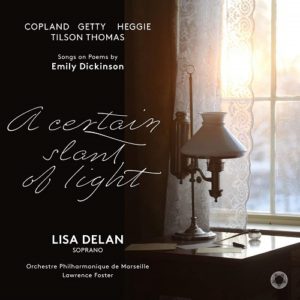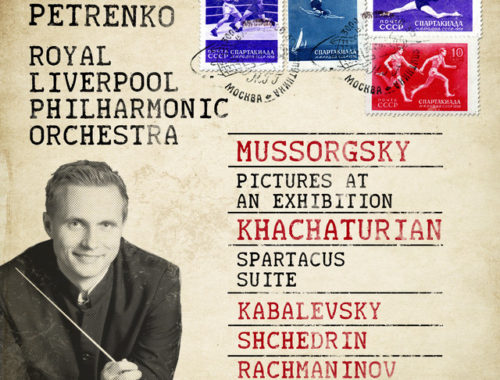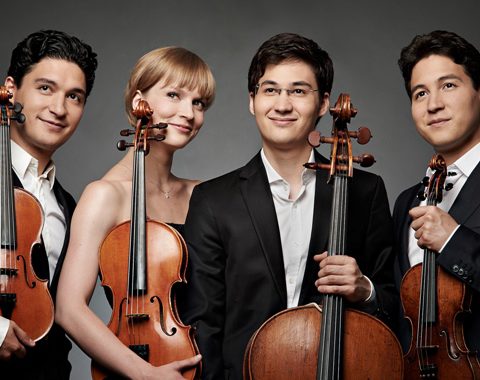GRAMOPHONE Review: A Certain Slant of Light – Lisa Delan, Marseille Philharmonic Orchestra/Foster
 As this collection and its accompanying notes reminds us, the music came first and the poetry followed for Emily Dickinson. Like all respectable young American women of a certain social standing she studied piano and voice. And the music that emerged from her studies infused her words with a rhythm and cadence – a music – all of their own. Small wonder that those words have drawn composers of every hue to her poetry. Four of those composers feature here and their choices, both in terms of the poems selected and the musical language, make for fascinating comparisons. Would that their distinctive styles were more vividly reflected in the singing of Lisa Delan.
As this collection and its accompanying notes reminds us, the music came first and the poetry followed for Emily Dickinson. Like all respectable young American women of a certain social standing she studied piano and voice. And the music that emerged from her studies infused her words with a rhythm and cadence – a music – all of their own. Small wonder that those words have drawn composers of every hue to her poetry. Four of those composers feature here and their choices, both in terms of the poems selected and the musical language, make for fascinating comparisons. Would that their distinctive styles were more vividly reflected in the singing of Lisa Delan.
Her belief in, and feeling for, the poetry is not the issue here; but the archness of the delivery, the limited colours and rather generalised sound and intonation, is. One of the most fascinating aspects of this poetry lies with the apparent contradiction between their homespun “conversational” tone and their visionary dimensions. I don’t get that from Delan’s performances. She has a vibrant sound, for sure, with ample heft and potential drama in the chestiness of the lower register – but her lively vibrato can muddy the words (you do need the texts in front of you) and make for an unappealing squalliness under pressure. I miss the essential purity of a setting like “Heart, We Will Forget Him” in the Copland group and don’t ever really feel the personality of the verse – the humour, the irony – coming through the sound.
That the five Jake Heggie settings (lovely) were written for Kiri Te Kanawa only accentuates what is missing here. “That I Did Always Love” is a gorgeous realisation of the poem but it longs for a more luscious tone. But again I come back to the “archness”, the rather “singerly” delivery, which for me plays against the gently cynical and sweetly humorous informality of the verse. It’s fun to compare and contrast Gordon Getty’s take on “Because I Could Not Stop For Death” with Copland’s, not least his quizzical twist on the pay-off line.
Michael Tilson Thomas, too, is drawn by the irony and mischievous social commentary of the poems. Their quixotic nature. His five settings are smashing and so well attuned to the spirit of the verse. He lends a sea-faring jauntiness to “Down Time’s Quaint Stream”, accentuating the imagery rather cheekily, and he has the measure of Dickinson’s visionary reach in “The Earth Has Many Keys” and more especially “Take All Away From Me” – “but leave me Ecstasy”. Dickinson knew the true meaning of that last word.
So, good to hear the way this poetry exercises a composer’s imagination and good to hear how the orchestral sonorities – as realised by the Orchestre Philharmonique de Marseille under the always revealing Lawrence Foster – can so vividly extend the reach of the verse. I just wish the singer in this instance was a more compelling and characterful embodiment of Emily Dickinson’s enduring brilliance, wit, and heart.




